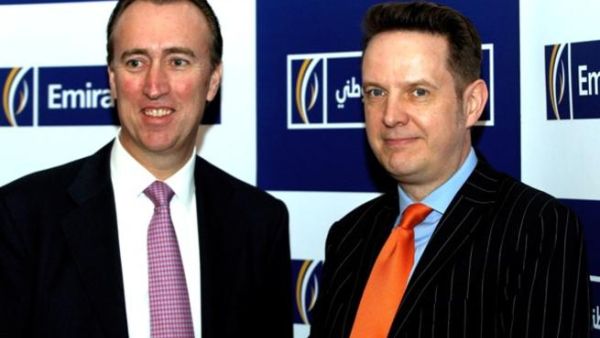Divergence between developed and emerging economies key theme for 2011, says Emirates NBD

With growth rates in emerging markets outstripping those of developed markets and predicted to rise steadily over the next few years, Emirates NBD, the Middle East’s leading bank, says global divergence will be the key theme for investors in 2011.
“Such divergent trends pose a dilemma for policymakers, which is currently reflected in rising bond yields,” said Mark McFarland, Emerging Markets Economist, Emirates NBD. “It also creates the potential for renewed foreign exchange market volatility, which is still hampered by the five-year credit default swaps, in addition to cyclical issues that are driving foreign exchange, such as exchange and interest rates.”
Whereas GDP growth in the G7 is only just getting back to pre-crisis levels, emerging markets and Asia hardly noticed a dip at all, or exceeded their pre-2008 output levels.
“Global GDP expansion is underway as world trade flows improve, but engines such as China, Brazil and India will continue to drive both recovery and global growth, which means emerging markets will offer investors better fundamentals into 2011,” said McFarland.
Middle East and North African (MENA) markets are also set to improve, while Europe’s crisis worsens in the shadow of credit defaults. The developed world, hampered by large gaps in production output, high unemployment and now the added complication of rising global inflation and commodity prices, is lagging the recovery in emerging markets.
“Overall, MENA markets provide attractive opportunities for investors in 2011 when growth will be well into the recovery phase,” continued McFarland. “To further boost recovering capital flows in MENA, incentivised return of capital to the region is much needed as monetary growth has yet to recover outside of Qatar.
“In the GCC, the real GDP growth rate is set to rise in 2011. Closer to home, there will be a gradual improvement in financial confidence lead by a slow narrowing between the UAE EIBOR and LIBOR spread,” he added.
“Oil prices are predicted to remain high, which will bode well for infrastructure spending in the region,” according to Gary Dugan, Chief Investment Officer and Acting General Manager, Private Banking, Emirates NBD. According to Dugan, crude oil prices are expected to average US$76-88 per barrel in 2011.
Focusing on investment recommendations for the year ahead, Dugan advised: “Local equities still prove attractive, but investors should wait before buying emerging market equities, which face near-term challenges and equity prices in general are no longer as low as they were. Investors are advised to buy global developed market equities but with care. Globally, the technology and healthcare sectors both offer good opportunities as do G7 bonds with long durations.
“On the commodities front, the recommendations are to choose selectively,” he cautioned. “We expect commodity prices to continue on the up, but there is a requirement for growth in order for demand to catch up with 2011 production estimates. As for real estate, opportunities, again, are selective. Most importantly, investors are reminded to keep their portfolios diversified.”
When it comes to gold, he advised: “As the original store of value, gold is still considered a core asset for wealth management in 2011, especially amid lack of credibility of many global currencies. Keeping gold as wealth preservation rather than for tactical gains is strongly recommended.
“In the metal markets gold and silver are undergoing some selling pressures, but a stronger global demand for industrial metals is meeting a well supplied market in aluminum, nickel, zinc and lead, which are all expected to see strong supply growth in 2011.”
Background Information
Emirates NBD
Emirates NBD, the leading banking group in the region, was formed on 19 June 1963, when H.H. Late Sheikh Rashid bin Saeed Al Maktoum signed the Charter of Incorporation of the National Bank of Dubai (NBD) which became the first National Bank established in Dubai and the United Arab Emirates (UAE). With the blessings of H.H. Sheikh Mohammed bin Rashid Al Maktoum, Vice President and Prime Minister of the UAE and Ruler of Dubai, NBD merged with Emirates Bank International (EBI) on 06 March 2007, to form Emirates NBD, the largest banking group in the region by assets. On 16 October 2007, the shares of Emirates NBD were officially listed on the Dubai Financial Market (DFM). The merger between EBI and NBD to create Emirates NBD, became a regional consolidation blueprint for the banking and finance sector as it combined the second and fourth largest banks in the UAE to form a banking champion capable of delivering enhanced value across corporate, retail, private, Islamic and investment banking throughout the region.






